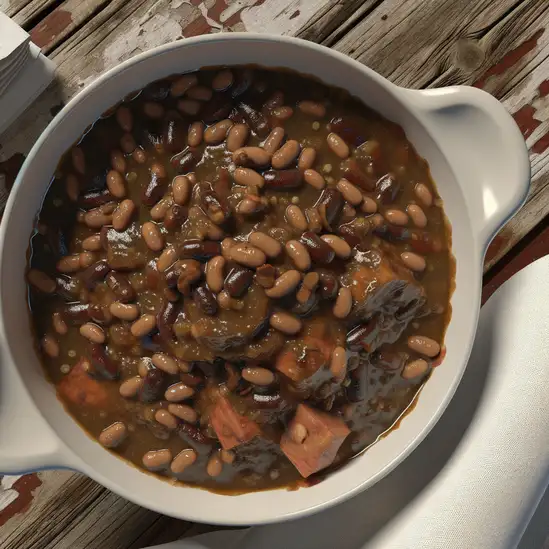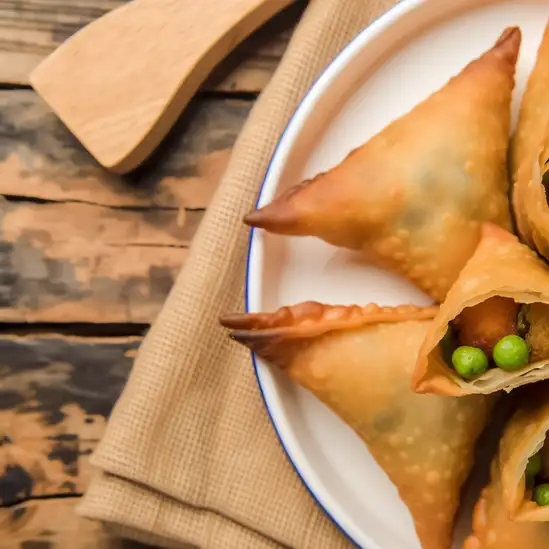



Kampala feels like a city that’s constantly humming with life,where tradition and modern energy dance side by side. The moment you step into its bustling streets,you’re wrapped in a warm,vibrant atmosphere—vendors calling out their wares,the scent of freshly roasted coffee mingling with the earthy aroma after a rain,and the colorful fabrics fluttering in the breeze. It’s a place where the rhythm of daily life pulses through every corner,from the lively markets to the music spilling out of open windows. What really makes Kampala special is its people—their warmth and openness are infectious. You’ll find yourself drawn into conversations over a steaming cup of Ugandan chai or sharing a plate of rolex (a delicious chapati rolled with eggs and veggies) from a street stall. The city’s character is a beautiful blend of old and new:ancient shrines and mosques sit alongside sleek cafes and art galleries,while the laughter of children playing in the streets reminds you that life here is joyful and resilient. As the sun sets,Kampala transforms again. The city lights flicker on,and the air fills with the sounds of Afrobeat and reggae,inviting you to dance or simply soak in the vibrant nightlife. Whether you’re wandering through the lush greenery of the nearby hills or exploring the lively neighborhoods,Kampala leaves you with a sense of connection—to its culture,its people,and its undeniable spirit.
The information on this page is currently being reviewed by Tripkliq and should be used as a guide only
Eng word: Hello
Eng pronunciation: Jyeh-bah-leh
Local language: Gyebale
Eng word: Goodbye
Eng pronunciation: Way-rah-bah
Local language: Weeraba
Eng word: Thank you
Eng pronunciation: Way-bah-leh
Local language: Webale
Eng word: How much
Eng pronunciation: Beh-rah bee-tyah
Local language: Bbeera bitya
Eng word: Toilet
Eng pronunciation: Eh-meh-reh
Local language: Emmere
Eng word: Help me
Eng pronunciation: Nyan-bah
Local language: Nnyamba
Eng word: Yes
Eng pronunciation: Yeh
Local language: Ye
Eng word: No
Eng pronunciation: Neh-dah
Local language: Nedda
Eng word: Excuse me
Eng pronunciation: Nsoh-nyih-wah
Local language: Nsonyiwa
Kampala was originally built on seven hills, earning it the nickname 'City of Seven Hills.' It was established as the capital of the Buganda Kingdom in the 19th century.
The name 'Kampala' is derived from the Luganda phrase 'Kasozi ka Impala,' which means 'Hill of the Impala,' referring to the antelope species that roamed the area.
The Kasubi Tombs, a UNESCO World Heritage Site, are the burial grounds for four Kabakas (kings) of Buganda. They are an important cultural and spiritual site in Kampala.
The Independence Monument in Kampala commemorates Uganda's independence from British colonial rule on October 9,1962. It is a popular landmark for visitors.
Founded in 1922, Makerere University is one of Africa's oldest and most prestigious universities. It has produced many notable alumni, including several African leaders.
Established in 1908, the Uganda Museum in Kampala is the oldest museum in East Africa. It showcases Uganda's cultural heritage, including ethnographic, natural history, and historical exhibits.
Namirembe Cathedral, also known as St. Paul's Cathedral, is the oldest cathedral in Uganda. It was built in 1919 and serves as the main Anglican church in Kampala.
Rubaga Cathedral, also known as St. Mary's Cathedral, is the seat of the Roman Catholic Archdiocese of Kampala. It was completed in 1925 and is a significant religious site.
The Lubiri, or Kabaka's Palace, is the official residence of the King of Buganda. It is located on Mengo Hill and is an important cultural and historical site in Kampala.
In Kampala, the most common Power Adaptor is Type G.


A dish made from beans cooked in a rich tomato sauce, often served with rice or posho.

Fried or baked pastry filled with spiced potatoes, peas, or meat, commonly enjoyed as a snack.

Steamed and mashed green bananas, often served with a sauce made from groundnut or meat.

A traditional Ugandan stew made with meat (chicken, beef, or goat), vegetables, and groundnut sauce, cooked in a banana leaf.

A staple food made from maize flour, cooked into a thick porridge, often served as a side dish.

A popular street food consisting of a chapati filled with eggs and vegetables, rolled up for easy eating.

Fried grasshoppers, considered a delicacy and often enjoyed as a snack or appetizer.

A dish made from groundnut paste mixed with vegetables, often served with rice or posho.
Nairobi pulses with an energy that’s both vibrant and surprisingly laid-back,like a city that’s found its own rhythm somewhere between wild adventure and urban cool. When you step into Nairobi,you’re greeted by a mosaic of sounds—the lively chatter of street vendors,the distant roar of matatus weaving through traffic,and the occasional call of birds from the nearby green spaces. The air carries a mix of aromas:fresh coffee brewing in cozy cafés,sizzling nyama choma (grilled meat) from open-air joints,and the earthy scent of rain-soaked soil after a sudden afternoon shower.
What makes Nairobi truly special is how it effortlessly blends the modern with the natural. Skyscrapers rise alongside sprawling markets where artisans sell colorful fabrics and handcrafted jewelry. You can wander through bustling neighborhoods like Westlands or explore the calm of the Nairobi National Park,where giraffes and zebras graze just beyond the city skyline. The city’s heartbeat is its people—warm,welcoming,and endlessly proud of their rich culture. You’ll find yourself drawn into conversations over steaming cups of chai,learning about local music,art,and stories that have shaped this dynamic place.
Nairobi invites you to slow down and soak in its layers—the vibrant street art,the lively music spilling from bars,the taste of fresh mangoes from roadside stalls,and the feeling of possibility in the air. It’s a city that surprises you,challenges you,and leaves you with a sense of connection long after you’ve left.
Dar es Salaam pulses with a vibrant energy that instantly wraps around you like a warm,familiar hug. It’s a city where the salty breeze from the Indian Ocean mingles with the rich aroma of street-side spices and freshly grilled seafood,creating an intoxicating sensory cocktail. Walking through its bustling markets,you’ll hear the lively chatter of vendors,the rhythmic beat of taarab music drifting from nearby cafes,and the occasional call of fishermen bringing in their catch. There’s a raw,unpolished charm here—far from the polished tourist spots—that makes every corner feel alive and authentic.
The city’s character is a beautiful blend of cultures,from the Swahili influences visible in the coral stone architecture to the colorful fabrics and crafts that spill out of shops and stalls. You can taste this fusion in the food too—imagine biting into a perfectly spiced mishkaki skewer or savoring a plate of ugali with fresh fish,all while watching the sun dip below the horizon,painting the sky in fiery oranges and pinks.
What makes Dar es Salaam truly special is its people—their warmth,resilience,and infectious smiles. Whether you’re sharing a laugh with a local artisan or joining a lively street dance,you’ll feel a genuine connection that stays with you long after you leave. It’s a city that invites you to slow down,soak in its rhythms,and discover stories woven into every street and wave.
Kigali feels like a breath of fresh air the moment you arrive—clean,calm,and buzzing quietly with promise. It’s a city that wears its history with grace but looks firmly toward the future,blending modern energy with deep-rooted warmth. Walking through its streets,you’ll notice the gentle hum of daily life:vendors calling out in Kinyarwanda,the aroma of freshly brewed coffee mingling with the scent of blooming jacaranda trees,and the vibrant colors of local fabrics fluttering in the breeze. There’s a rhythm here that’s both soothing and invigorating.
What really struck me about Kigali was how welcoming and genuine the people are. Whether you’re sharing a meal of brochettes and plantains at a bustling market or chatting with artists in a cozy café,you feel connected to a community proud of its culture and eager to share it. The city’s art scene pulses with creativity—from contemporary galleries to street murals that tell stories of resilience and hope.
Beyond the city’s calm streets,Kigali offers stunning views from its rolling hills,especially at sunset when the sky paints itself in shades of pink and gold. It’s a place where tradition and innovation dance together,inviting you to slow down,listen,and soak in a spirit that’s quietly powerful. If you’re looking for a destination that surprises you with its depth and leaves you feeling inspired,Kigali is waiting with open arms.
If you ever find yourself dreaming of a place where the ocean breeze carries the scent of spices and salt,Mombasa is that kind of city. It’s a vibrant,sun-soaked coastal town where the rhythm of life feels both laid-back and alive. Walking through its streets,you’ll hear the melodic call to prayer blending with the chatter of Swahili traders and the distant crash of waves against coral reefs. The city’s heartbeat is unmistakably tied to the sea,with colorful dhows bobbing gently in the harbor and fishermen hauling in their catch at dawn.
Mombasa’s character is a beautiful tapestry woven from centuries of history and culture. The old town,with its narrow alleys and intricately carved wooden doors,invites you to get lost in stories of Arab traders,Portuguese explorers,and local Swahili traditions. The aroma of freshly grilled seafood mingles with the sweet,warm scent of cardamom and cloves from nearby markets,tempting you to try dishes like pilau or samosas bursting with flavor.
What makes Mombasa truly special is its effortless blend of old and new,calm and chaos. You can lounge on white sandy beaches under swaying palms one moment,then dive into bustling markets or lively street festivals the next. It’s a place where every sunset feels like a celebration,painting the sky in fiery hues and promising more adventures tomorrow. Trust me,Mombasa isn’t just a destination—it’s a feeling you’ll want to carry with you long after you leave.
If you ever find yourself in Tanzania,Arusha is the kind of place that wraps around you like a warm,familiar blanket. Nestled at the foot of Mount Meru,the city hums with a gentle energy—part bustling market town,part gateway to wild adventures. Walking through its streets,you’ll catch the scent of fresh coffee mingling with spices from nearby stalls,while the chatter of Swahili and laughter from children playing in the distance create a lively soundtrack. It’s a place where the air feels crisp and fresh,thanks to the surrounding greenery and cool mountain breeze.
What makes Arusha truly special is its blend of cultures and the genuine warmth of its people. You’ll find Maasai warriors in their vibrant red shukas alongside traders selling colorful fabrics and handcrafted jewelry. The city pulses with a rhythm that’s both traditional and modern,where local markets spill over with fresh fruits,roasted maize,and the irresistible aroma of street food like mishkaki (grilled meat skewers). Sitting at a small café,sipping on a cup of Tanzanian coffee,you can watch the world go by and feel connected to a community that’s proud of its roots yet open to the world.
Beyond the city’s charm,Arusha is your launchpad to some of Africa’s most breathtaking landscapes—think the vast plains of the Serengeti and the otherworldly Ngorongoro Crater. But even if you’re just wandering the city itself,there’s a soulful,grounded vibe here that stays with you long after you leave. It’s a place that invites you to slow down,breathe deeply,and soak in the rich tapestry of life that makes Tanzania so unforgettable.
Juba is a growing city along the White Nile,offering unique cultural experiences and proximity to river islands and natural landscapes.
ExploreScammers install skimming devices on ATMs to steal card information from unsuspecting tourists withdrawing cash.
Tourists are given counterfeit currency or shortchanged when exchanging money at unofficial exchange points or with street vendors.
Scammers approach tourists claiming to represent a charity or pretending to be in dire need, but the money goes to them personally.
Imposters dressed as police officers stop tourists, accuse them of minor infractions, and demand bribes to let them go.
Scammers pose as tour guides and offer to show tourists around, only to overcharge them or lead them to overpriced shops where they get a commission.
Tourists are tricked into paying for fake hotel bookings through fraudulent websites or agents.
Motorcycle taxi drivers (boda bodas) overcharge tourists, especially if they are unfamiliar with local rates.
Thieves target tourists in crowded areas, markets, or public transport to steal wallets, phones, or bags.
Locals approach tourists with fabricated stories of hardship to solicit money or assistance.
Vendors inflate prices significantly for tourists, especially in markets or near tourist attractions.
The use, possession, and trafficking of illegal drugs are strictly prohibited in Uganda. The country has stringent laws against drug-related offenses, and penalties can be severe, including long prison sentences and heavy fines. Tourists should avoid any involvement with illegal drugs to prevent legal issues.
In Kampala, Uganda, smoking is regulated under the Tobacco Control Act of 2015. Smoking is prohibited in public places such as schools, hospitals, public transport, and government buildings. Designated smoking areas are available in some places, but it is important to look for signs indicating where smoking is allowed. Violations can result in fines or other penalties.
Vaping is also regulated under the Tobacco Control Act of 2015. Similar to smoking, vaping is prohibited in public places and is subject to the same restrictions. Tourists should be cautious and look for designated areas where vaping is permitted to avoid fines or penalties.
What are other people saying about Kampala?
Recent Social posts about Kampala
There is nothing to show you for now.